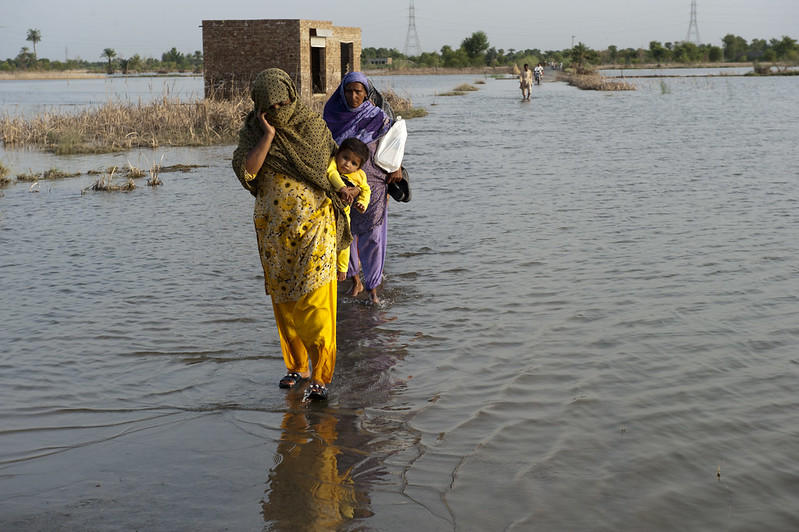- The 21st century showcases climate change’s profound effects, intensifying crises like global warming and extreme temperatures. Pakistan grapples with climate change amidst existing challenges.
- Climate change disrupts menstrual health, causing irregular periods and early menarche.
- Research shows younger girls experiencing menstruation due to rising temperatures, reflecting climate change’s broader impact.
In the 21st century, the importance of climate change has never been more profound, with successive environmental crises causing widespread upheaval. The effects of global warming, elevated sea levels, prolonged droughts, and extreme temperatures have intensified, magnifying the anguish of countless individuals. According to a recent United Nations study, those already in vulnerable and marginalized situations bear a disproportionate brunt of climate change’s consequences.
Adverse Impact of Climate Change on Pakistani Women
Climate change has emerged as one of the most pressing global challenges of our time, affecting ecosystems, economies, and societies. In Pakistan, a country already grappling with various social and economic issues, the consequences of climate change are particularly profound.
The recent floods in Pakistan created havoc and destroyed multiple lives and washed away villages. The people affected the most were women and children, with nowhere to go, they were forced to stay back and save their homes from being robbed while the men went on to get help from the city.
Amid these dire circumstances, reports have underscored that more than 650,000 pregnant women became ensnared, urgently necessitating medical attention and assistance. Troubling narratives from affected regions, such as the story of a woman in Shahdadkot who faced the necessity of birthing amidst the wreckage of her home without any medical aid, vividly illuminate the gravity of the situation.
Heat Waves and The Effect on Maternal Health
Rising temperatures and extreme weather events are leading to adverse impacts on reproductive and maternal health. Heatwaves, for instance, pose risks during pregnancy and childbirth, increasing the likelihood of complications. Moreover, climate-induced displacement can disrupt access to reproductive health services, including antenatal and postnatal care. This can contribute to higher maternal mortality rates and inadequate healthcare for newborns.
Early ‘Menache’ and What it Means for Women’s Health
Menarche, marks the commencement of the female menstrual cycle, contrasts with menopause, which marks its culmination. Attributed to the abrupt elevation in global temperatures in recent times, women’s menstrual well-being encounters disruption, resulting in irregular periods. Furthermore, a contemporary pattern of early menarche has emerged due to the influence of climate change.
A renown researcher states,
“In preceding decades, around the 70s and 80s, the onset of menarche occurred at 14-15 years of age. However, nowadays, we witness even 10-year-olds experiencing menstruation.”
This phenomenon resonates with findings detailed in a study featured in the International Journal of Environmental Research and Public Health.
Also Read:
Women’s Health in Pakistan: A Vaccine to Combat Cervical Cancer
Extreme Weather, Natural Disasters and Menstruation
Girls who begin their menstruation at an early age also start menopause at an earlier age.
This transition to menopause signs a reduction in estrogen production, impeding women’s ability to absorb dietary calcium. Estrogen, a hormone secreted by the ovaries, profoundly influences women’s sexual and reproductive maturation. Its levels diminish post-menopause.
Natural calamities, such as cyclones, exacerbate the susceptibility of women to infections. Upholding menstrual hygiene already presents challenges during normal periods in the rural areas such as those affected by floods in Pakistan. However these issued escalate in times of floods and disasters.
The unsanitary living conditions women face in times of disasters contribute to severe urinary tract infections for women and could lead to infertility in women.
Follow WOW360 for more.
